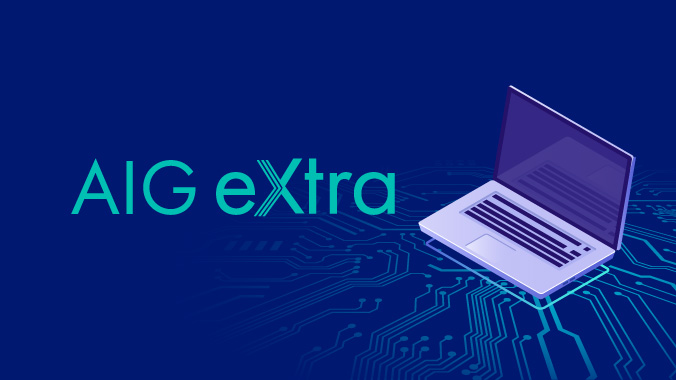
There are several ways to achieve financial freedom. In this article, we'll talk about investing in real estate, having a fully funded emergency fund, and having a side hustle. It is possible to have a side gig that pays extra each month. Follow these steps to reach financial freedom in no matter how fast you go. So what are you waiting for? Start today! It will only take a few minutes a day.
Investing in real estate

If you are looking for financial freedom, one of the most lucrative investments you can make is real estate. Apartment buildings are a better option than single family homes. You can get the same income in much less time. You should be aware that although you will need to put in more effort and work, the results can be predictable.
Each month you can save more money
Many people dream of financial freedom. The ability to save and invest enough money to allow you to live your dreams and pursue your career is vital. Unfortunately, too many people don’t save enough, end up in financial distress, debt and spend more than they should. There is no magic number, so you will need to figure out what it is. There are several things you can do to help save more money each monthly for financial freedom.
A fully-funded Emergency Fund
A well-funded emergency fund can allow you to achieve financial freedom. This can be achieved by making sacrifices in some other areas of your lifestyle. You can start by reducing your tax refunds. By cutting out these expenses you will have extra money to save and add to your emergency fund. It is possible to even find "found" funds by selling household products or gift cards.
Side hustle

If you want to achieve financial freedom, starting a side hustle is vital to your future. While the money from side hustles can be used to buy nice things, you will need to take your side hustle to the next level. As you learn, you will eventually move on from trading hours for money and start being your own boss. Neben learning new skills, a side hustle is an excellent way to make extra cash.
A family with two incomes
One of the first steps in achieving financial freedom is to set personal goals. Liz Ewing, CFO of Marcus by Goldman Sachs, suggests setting short-term and long-term goals, and analyzing how you relate to money. Financial freedom can seem impossible but it is possible, even for middle-class families.
FAQ
Are bonds tradeable?
Yes, they do! As shares, bonds can also be traded on exchanges. They have been traded on exchanges for many years.
The main difference between them is that you cannot buy a bond directly from an issuer. You will need to go through a broker to purchase them.
It is much easier to buy bonds because there are no intermediaries. This also means that if you want to sell a bond, you must find someone willing to buy it from you.
There are many different types of bonds. Some bonds pay interest at regular intervals and others do not.
Some pay quarterly, while others pay interest each year. These differences allow bonds to be easily compared.
Bonds can be very helpful when you are looking to invest your money. For example, if you invest PS10,000 in a savings account, you would earn 0.75% interest per year. If you invested this same amount in a 10-year government bond, you would receive 12.5% interest per year.
If you were to put all of these investments into a portfolio, then the total return over ten years would be higher using the bond investment.
Why are marketable securities important?
An investment company exists to generate income for investors. It does this through investing its assets in various financial instruments such bonds, stocks, and other securities. These securities are attractive to investors because of their unique characteristics. They may be considered to be safe because they are backed by the full faith and credit of the issuer, they pay dividends, interest, or both, they offer growth potential, and/or they carry tax advantages.
What security is considered "marketable" is the most important characteristic. This is the ease at which the security can traded on the stock trade. Securities that are not marketable cannot be bought and sold freely but must be acquired through a broker who charges a commission for doing so.
Marketable securities include corporate bonds and government bonds, preferred stocks and common stocks, convertible debts, unit trusts and real estate investment trusts. Money market funds and exchange-traded money are also available.
These securities can be invested by investment firms because they are more profitable than those that they invest in equities or shares.
What is security?
Security can be described as an asset that generates income. Most security comes in the form of shares in companies.
Different types of securities can be issued by a company, including bonds, preferred stock, and common stock.
The value of a share depends on the earnings per share (EPS) and dividends the company pays.
When you buy a share, you own part of the business and have a claim on future profits. If the company pays a dividend, you receive money from the company.
You can sell your shares at any time.
How do I choose a good investment company?
You want one that has competitive fees, good management, and a broad portfolio. Fees vary depending on what security you have in your account. Some companies have no charges for holding cash. Others charge a flat fee each year, regardless how much you deposit. Some companies charge a percentage from your total assets.
Also, find out about their past performance records. A company with a poor track record may not be suitable for your needs. Avoid companies with low net assets value (NAV), or very volatile NAVs.
Finally, you need to check their investment philosophy. To achieve higher returns, an investment firm should be willing and able to take risks. If they aren't willing to take risk, they may not meet your expectations.
What is a REIT?
An REIT (real estate investment trust) is an entity that has income-producing properties, such as apartments, shopping centers, office building, hotels, and industrial parks. They are publicly traded companies which pay dividends to shareholders rather than corporate taxes.
They are very similar to corporations, except they own property and not produce goods.
Statistics
- For instance, an individual or entity that owns 100,000 shares of a company with one million outstanding shares would have a 10% ownership stake. (investopedia.com)
- US resident who opens a new IBKR Pro individual or joint account receives a 0.25% rate reduction on margin loans. (nerdwallet.com)
- The S&P 500 has grown about 10.5% per year since its establishment in the 1920s. (investopedia.com)
- Individuals with very limited financial experience are either terrified by horror stories of average investors losing 50% of their portfolio value or are beguiled by "hot tips" that bear the promise of huge rewards but seldom pay off. (investopedia.com)
External Links
How To
How to open a Trading Account
To open a brokerage bank account, the first step is to register. There are many brokers on the market, all offering different services. There are some that charge fees, while others don't. The most popular brokerages include Etrade, TD Ameritrade, Fidelity, Schwab, Scottrade, Interactive Brokers, etc.
Once your account has been opened, you will need to choose which type of account to open. You should choose one of these options:
-
Individual Retirement Accounts (IRAs)
-
Roth Individual Retirement Accounts
-
401(k)s
-
403(b)s
-
SIMPLE IRAs
-
SEP IRAs
-
SIMPLE 401(k).
Each option comes with its own set of benefits. IRA accounts offer tax advantages, but they require more paperwork than the other options. Roth IRAs are a way for investors to deduct their contributions from their taxable income. However they cannot be used as a source or funds for withdrawals. SEP IRAs are similar to SIMPLE IRAs, except they can also be funded with employer matching dollars. SIMPLE IRAs have a simple setup and are easy to maintain. These IRAs allow employees to make pre-tax contributions and employers can match them.
The final step is to decide how much money you wish to invest. This is also known as your first deposit. A majority of brokers will offer you a range depending on the return you desire. For example, you may be offered $5,000-$10,000 depending on your desired rate of return. The lower end represents a conservative approach while the higher end represents a risky strategy.
After choosing the type of account that you would like, decide how much money. Each broker will require you to invest minimum amounts. These minimums can differ between brokers so it is important to confirm with each one.
After deciding the type of account and the amount of money you want to invest, you must select a broker. Before selecting a brokerage, you need to consider the following.
-
Fees – Make sure the fee structure is clear and affordable. Brokers will often offer rebates or free trades to cover up fees. Some brokers will increase their fees once you have made your first trade. Do not fall for any broker who promises extra fees.
-
Customer service – You want customer service representatives who know their products well and can quickly answer your questions.
-
Security - Make sure you choose a broker that offers security features such multi-signature technology, two-factor authentication, and other.
-
Mobile apps - Find out if your broker offers mobile apps to allow you to view your portfolio anywhere, anytime from your smartphone.
-
Social media presence – Find out if your broker is active on social media. It might be time for them to leave if they don't.
-
Technology - Does it use cutting-edge technology Is the trading platform intuitive? Are there any issues when using the platform?
Once you have selected a broker to work with, you need an account. Some brokers offer free trials while others require you to pay a fee. Once you sign up, confirm your email address, telephone number, and password. Then, you'll be asked to provide personal information such as your name, date of birth, and social security number. Finally, you'll have to verify your identity by providing proof of identification.
After your verification, you will receive emails from the new brokerage firm. These emails contain important information about you account and it is important that you carefully read them. This will include information such as which assets can be bought and sold, what types of transactions are available and the associated fees. You should also keep track of any special promotions sent out by your broker. You might be eligible for contests, referral bonuses, or even free trades.
Next is opening an online account. Opening an online account is usually done through a third-party website like TradeStation or Interactive Brokers. Both sites are great for beginners. You'll need to fill out your name, address, phone number and email address when opening an account. After you submit this information, you will receive an activation code. Use this code to log onto your account and complete the process.
Now that you have an account, you can begin investing.